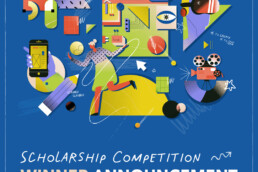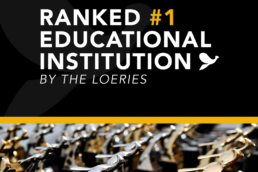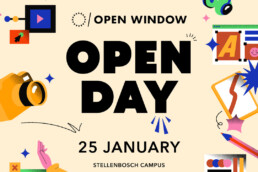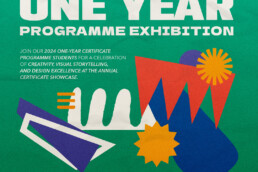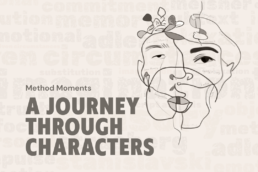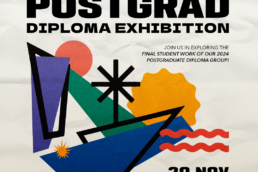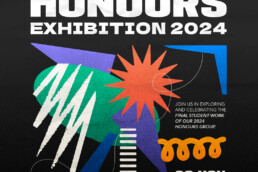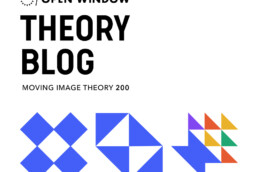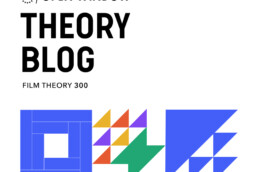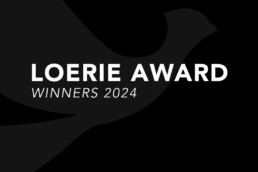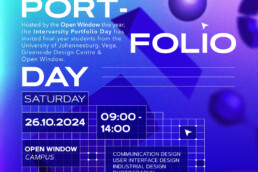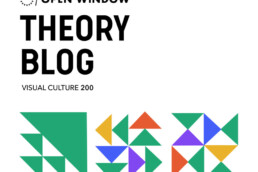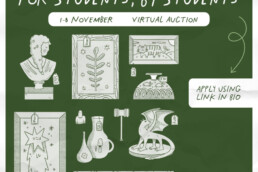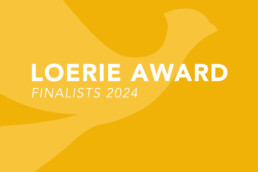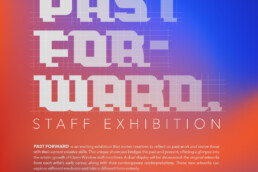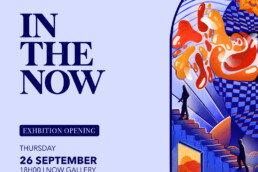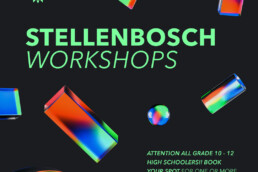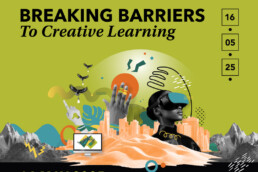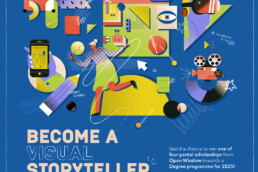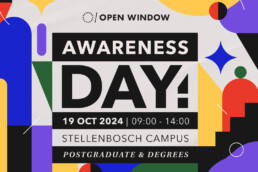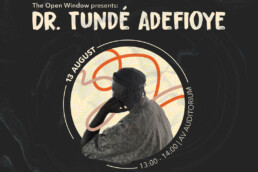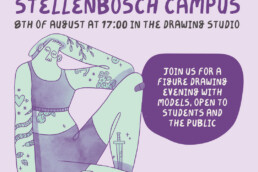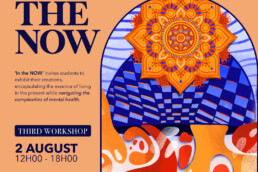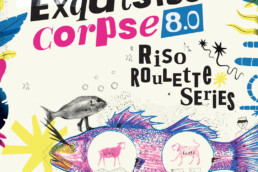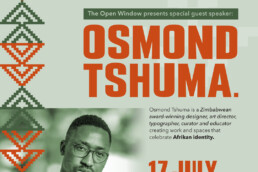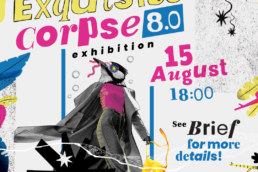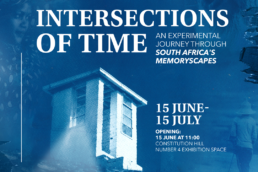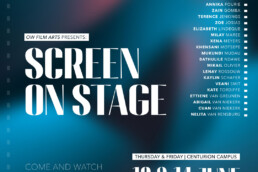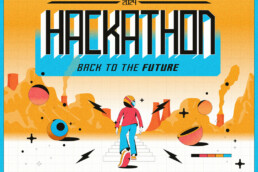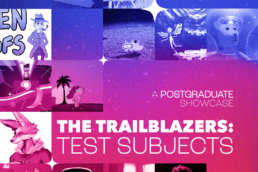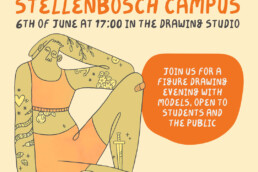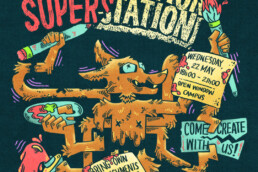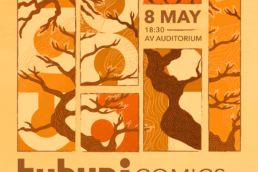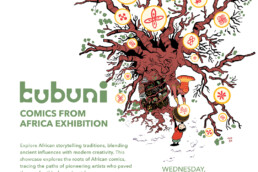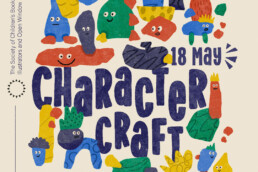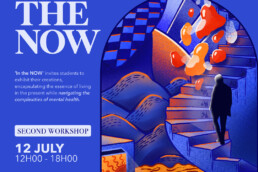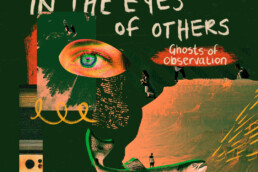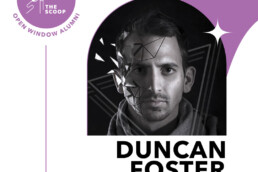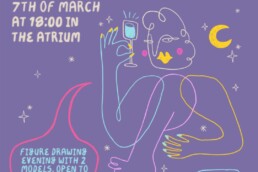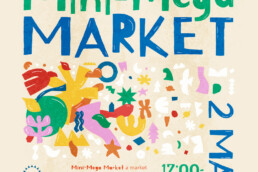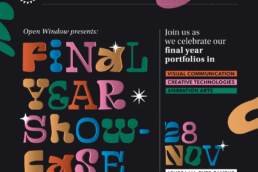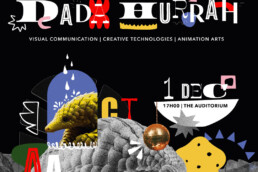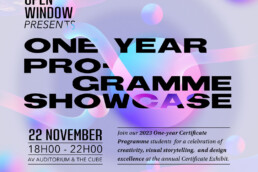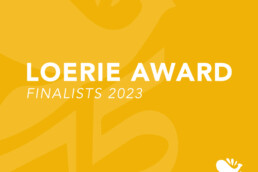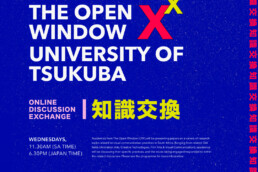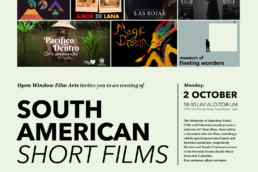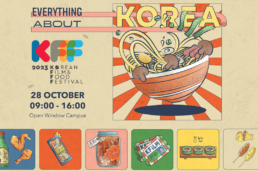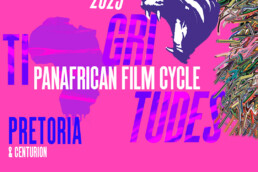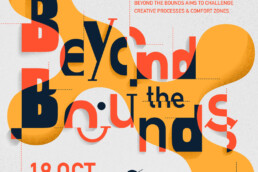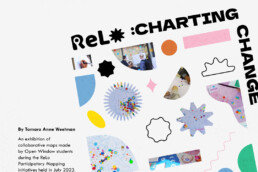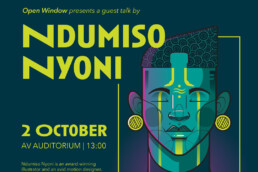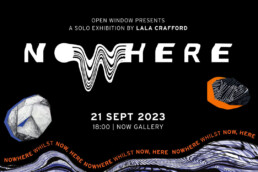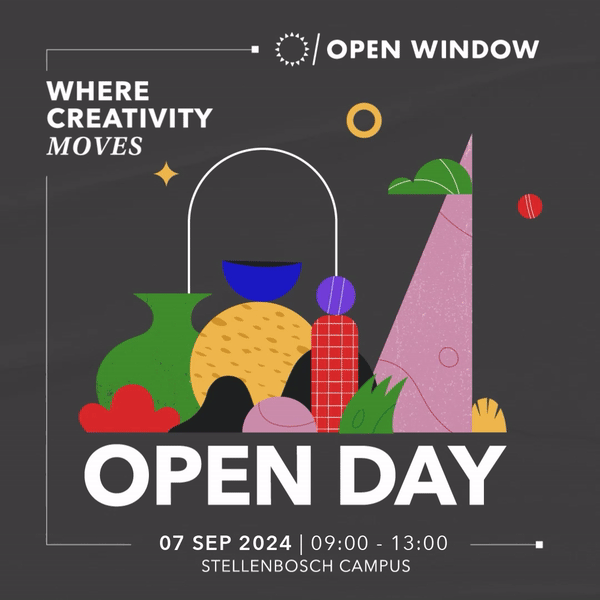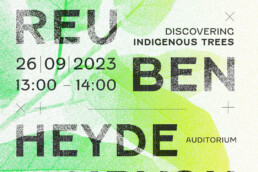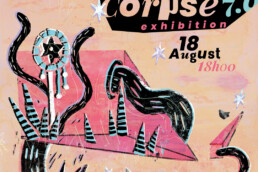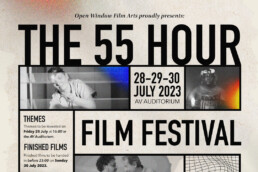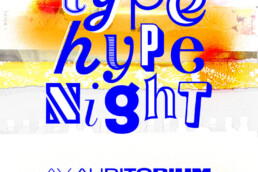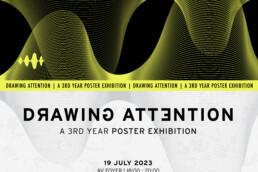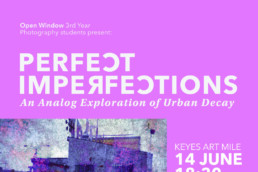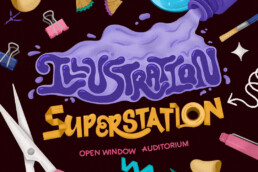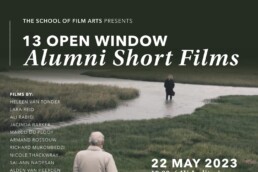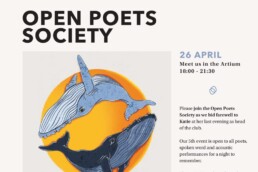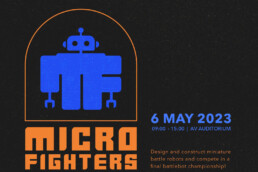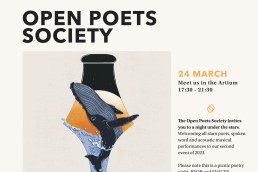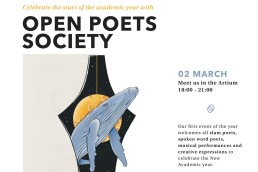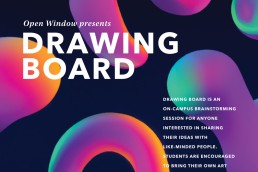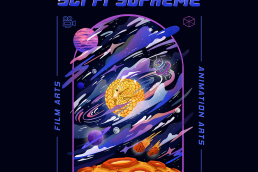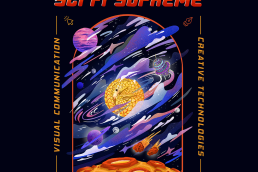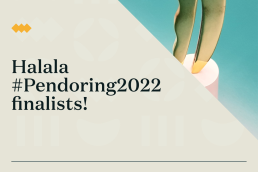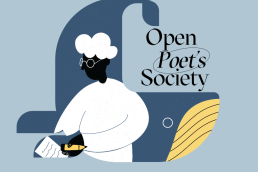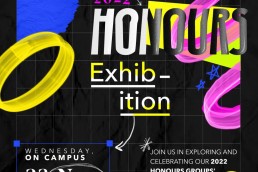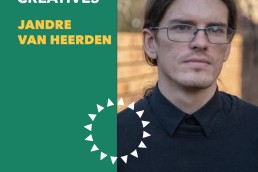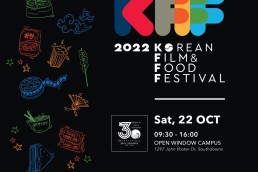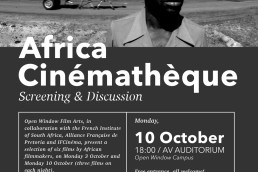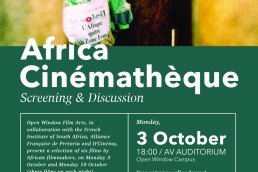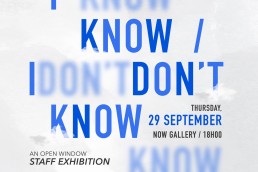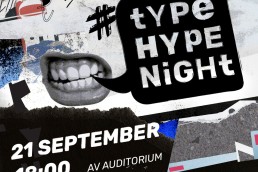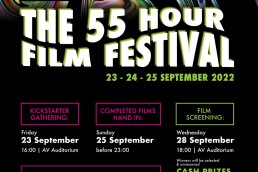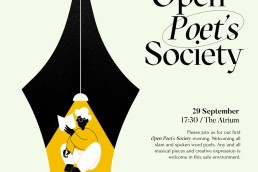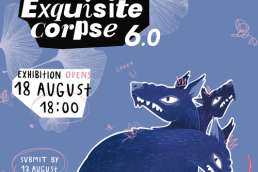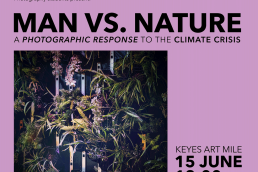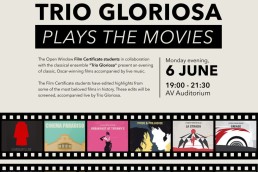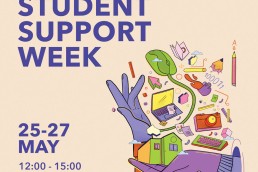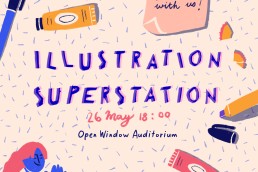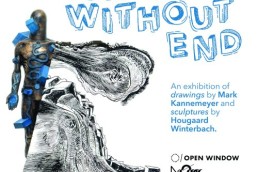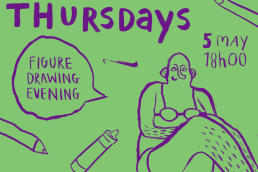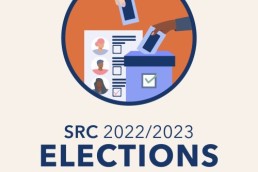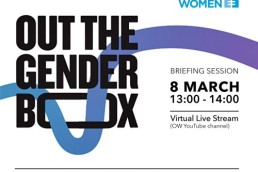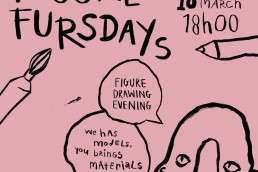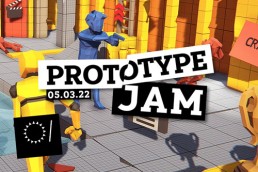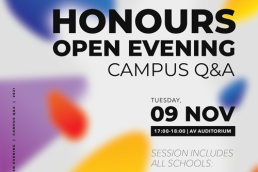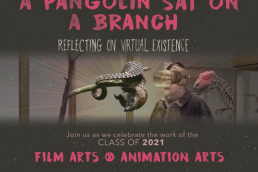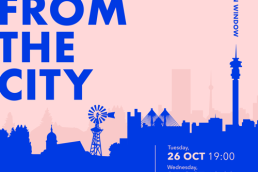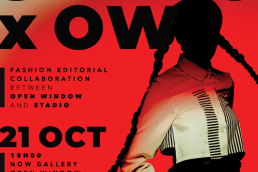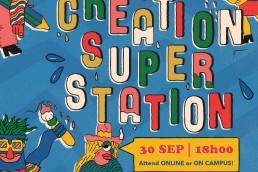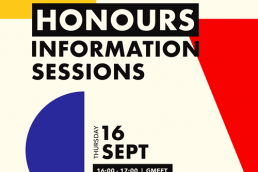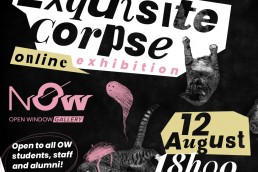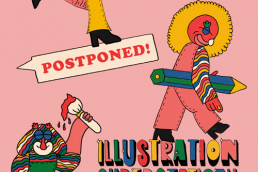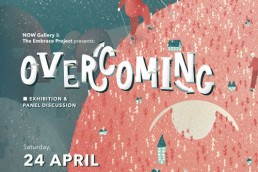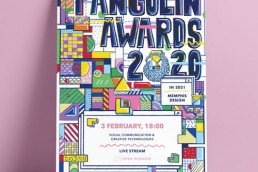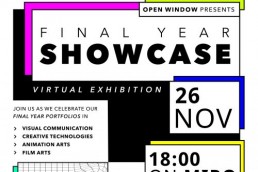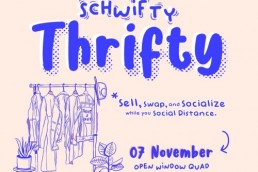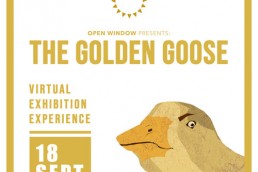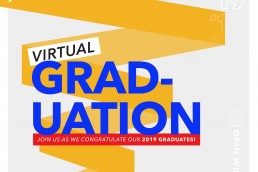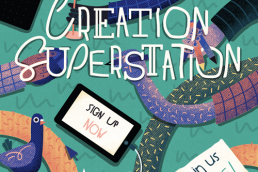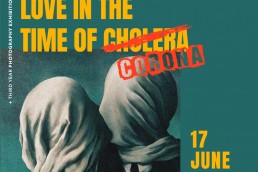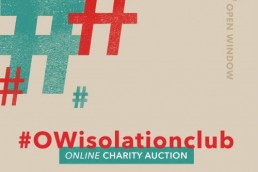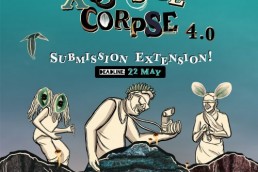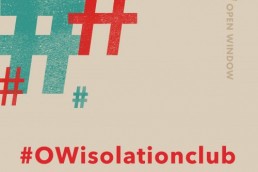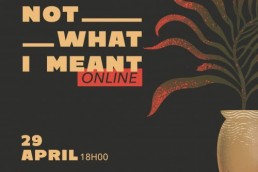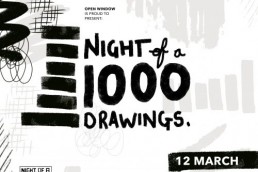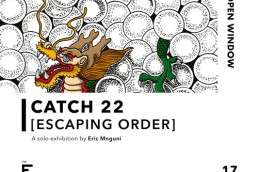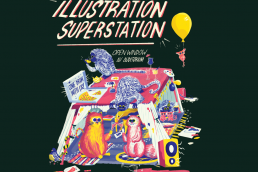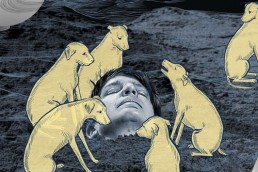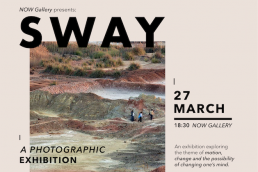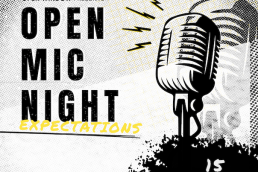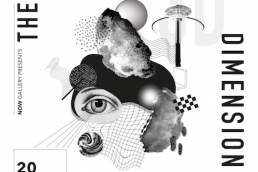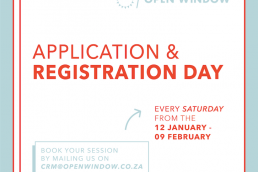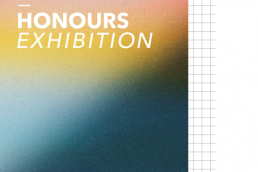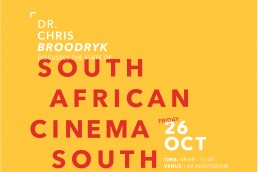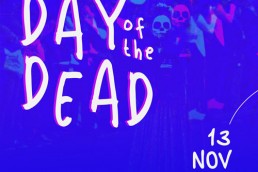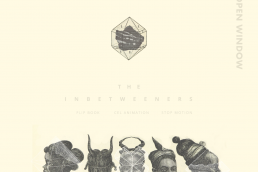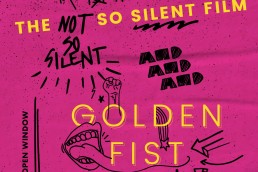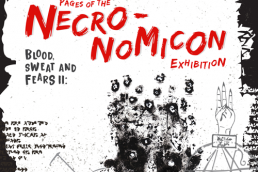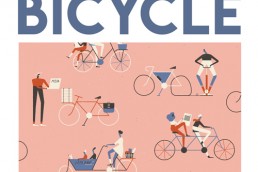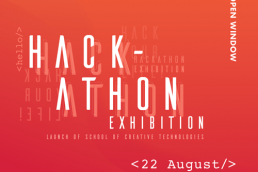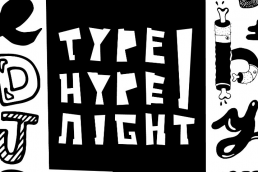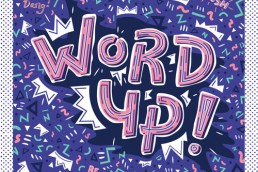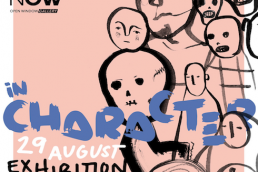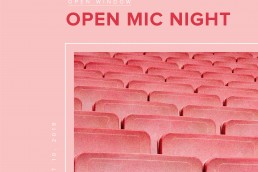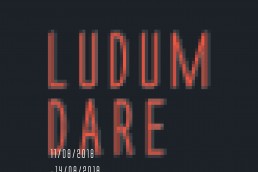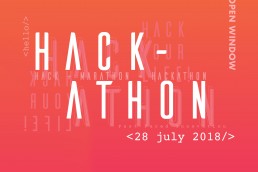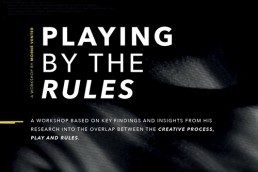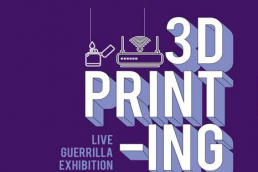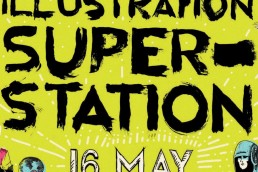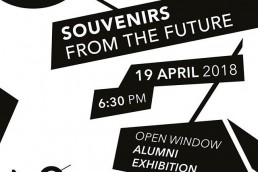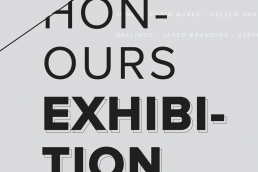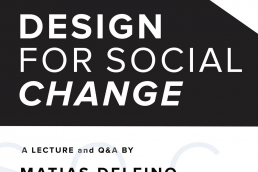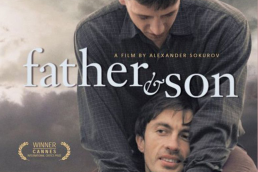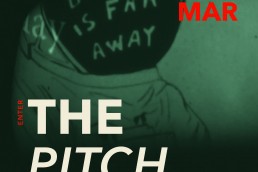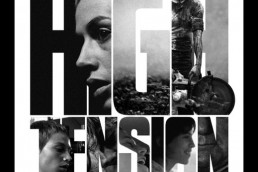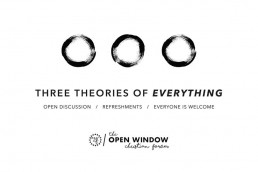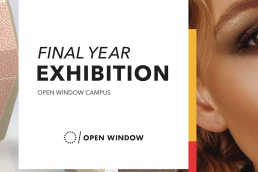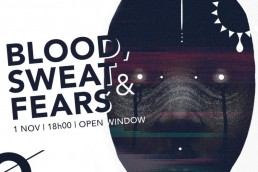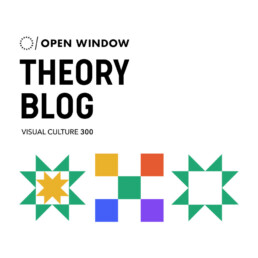

Visual Culture 300
INTRODUCTION TO THE GLOBAL SOUTH
In Semester 2, students were tasked with writing a self-reflexive essay on their work as creatives in a globalised, post-colonial South Africa. Students were allowed to select any project they had undertaken—student, freelance, or otherwise—in the past three years. In terms of theoretical framework, students were able to select theories ranging from the Diaspora, Creolisation, Afrofuturism, and a popular choice, Liminality. Challenging students to reflect on their practice proved cathartic for many of them. The selection below demonstrated a remarkable critical insight into their own work-related processes, coupled with a comprehensive and in-depth understanding of their chosen theory. Essays were selected based on their academic merit, methodological rigour, and critical insight.
Liminality in life and Limbo by Kwame Abrahamse (He/Him)
Abrahamse explores the liminal spaces inherent within his illustration work and life in general. In a deeply personal—yet critically engaging—self-reflective essay, Abrahamse guides the reader through the full context of their artistic process. With a thorough examination of his work, This Must be the Place, Abrahamse artfully describes the difficulties with depicting sensitive topics such as loss, grief, and death. Finally, Abrahamse concludes his analysis with a personal reflection, tying his personal experiences to his practice and liminality in general.
Creolised Code by Christian Krahtz (He/Him)
Krahtz’s paper takes the unconventional approach of applying theories of Creolisation to the realm of web development using React Native. Typically reserved for socio-political matters, Krahtz’s application of Creolisation within this context was thoughtful, illuminating, and remarkably unexpected. Demonstrating a keen insight into the principles underlying cultural hybridity, Krahtz thoughtfully applied his understanding of the theory to his profession. From the analysis, the readers gain new understanding of the culturally fractured world of web development and the challenges these professionals face.
INTRODUCTION TO THE INTERNET AND POSTMODERNISM
In Semester 1, students were tasked with investigating online communities through the lens of postmodernism. Students could select any community, including internet forums, online fandoms, private chat servers, and Whatsapp groups. In terms of theoretical framework, students had to adopt an analytical stance in line with either Baudrillard, Derrida, Eco, Jameson, Bhaba, or Kristeva, among others. This challenging task required empathy, understanding, and a keen critical eye. The brief called for exploring and critically analysing their chosen community while demonstrating an in-depth understanding of its social interactions. The essays selected below demonstrated a masterful sensitivity in discussing their chosen topic. Essays were chosen on their academic merit, methodological rigour, and commitment to their case study without bias or prejudice.
A Critical Analysis of the Online Community of Shipping: Our Flag Means (Death) ‘Fanfiction’ by Shelby Smit (They/Them)
Smit’s paper investigates the tenuous relationship between fans and authors in an online community centred around the television series Our Flag Means Death. Their paper artfully explores the anxiety between fans’ increasing expectations of a participatory role in media and corporate ownership. Simultaneously, Smit deploys the notion of the “fanboy auteur” to destabilise the hierarchical author/fan dichotomy. Their argument implies reframing historical revisionism and adaptation as sophisticated fanfiction—ambiguating distinctions between what is considered “canon” and “fanon” in contemporary media and historical texts.
The Subreddit r/AmITheAsshole and its Unique Form of Cultural Relativism by Gordon Madison (She/Her)
Madison’s essay explores the novel moral framework emergent in the online subreddit r/AmITheAsshole through the lens of cultural relativism theory. Her argument valorises the everyday interactions that insightfully constitute online sociality, demonstrating great sensitivity towards the topic. Madison’s investigation deftly explores the impact of online social normalisation in offline contexts by unpacking the microecology evolving in siloed communities online. Through meticulous research methods, her paper highlights the consequences of the increasing trend towards more private micro-publics on moral regulatory practices.
Related Posts
February 12, 2025
Scholarships Competition 2024 – Winners
January 31, 2025
Ranked No1 Educational Institution
November 11, 2024
Open Day (Centurion) – 25 Jan
November 11, 2024
Open Day (Stellenbosch) – 25 Jan
November 8, 2024
Pendoring Award Finalists 2024
October 24, 2024
One Year Programme Exhibition | 20 November
October 17, 2024
Method Moments: A Journey Through Characters
October 16, 2024
Postgrad Diploma Exhibition | 20 November
October 16, 2024
Honours Exhibition | 20 November
October 14, 2024
Theory Blog – Moving Image Theory 200
October 14, 2024
Theory Blog – Film Theory 300
October 14, 2024
Loerie Award Winners 2024
October 11, 2024
Intervarsity Portfolio Day | 26 October
October 11, 2024
The Scoop – Nathan Fernandes
October 10, 2024
Theory Blog – Visual Culture 200
October 10, 2024
Virtual FSBS Art Auction | 1- 8 November
October 8, 2024
Loerie Award Finalists 2024
October 1, 2024
Past Forward Exhibition | 24 October
September 27, 2024
Mini Mega Market | 22 November
September 25, 2024
In the Now Exhibition | 26 September
September 13, 2024
Korean Food and Film Festival | 19 October
August 19, 2024
High School – Stellenbosch Workshops
August 1, 2024
Scholarship Competition 2024
July 30, 2024
Awareness Day – Stellenbosch – 19 October
July 29, 2024
High School – August Workshops
July 29, 2024
Guest Speaker: Tundé Adefioye – 13 August
July 24, 2024
Figure Thursday (Stellenbosch) – 08 August
July 19, 2024
In the Now: Third Workshop – 02 Aug
July 12, 2024
Fantastic Planet Animation Club Screening – 24 July
July 8, 2024
Exquisite Corpse 8.0 – Riso Roulette Series
July 3, 2024
Guest Speaker: Osmond Tshuma | 17 July
June 12, 2024
The Scoop – Stephan Calitz
June 11, 2024
Honours Pecha Kucha & Exhibition | 17 July
June 5, 2024
Exquiste Corpse 8.0 | 15 August
May 31, 2024
Screen on Stage | 13 & 14 June
May 23, 2024
Figure Thursday (Stellenbosch) | 06 June
May 16, 2024
Creation Superstation (Stellenbosch) | 30 May
May 13, 2024
Creation Superstation (Centurion) | 22 May
April 17, 2024
The Scoop – Raymon van Niekerk
April 11, 2024
The Kubuni: Comics from Africa Exhibition – 24 April
April 10, 2024
Experimenting with Watercolour – 4 May
March 6, 2024
The Scoop – Reynard Droste
March 4, 2024
Pages in Progress – 30 May
February 27, 2024
In the Now: Second Workshop – 12 July
February 27, 2024
In The Eyes of Others: Ghosts of Observation – 13 March
February 26, 2024
The Scoop – Duncan Foster
February 13, 2024
Photo & Film Gear Expo – 19 February
February 12, 2024
The Scoop – Morne Venter
February 12, 2024
Figure Thursday – 07 March
February 12, 2024
Italy Tour 2024
February 9, 2024
Climbing Club Information Session
December 6, 2023
Scholarships 2023 Competition – Winners
November 24, 2023
The Scoop – Patrick Yaffe
November 22, 2023
Mini Mega Market | 02 May
November 22, 2023
Open Window Film Festival
November 13, 2023
Final Year Showcase | 28 Nov
November 10, 2023
The Scoop – Sabeeha Banubhai
November 8, 2023
Pangolin Awards 2023 | 1 Dec
October 31, 2023
Honours Exhibition 2023
October 31, 2023
One-Year Programme Showcase
October 11, 2023
The Scoop – Jayson Preece
October 9, 2023
Pendoring Award Finalists 2023
October 6, 2023
Open Window Staff’s Got Talent Show
October 5, 2023
Loerie Award Finalists 2023
October 4, 2023
Open Window X University of Tsukuba
September 29, 2023
South American – Short Films
September 26, 2023
Korean Film & Food Festival
September 17, 2023
Tigritudes Screenings – Panafrican Film Cycle
September 14, 2023
Beyond the Bounds Exhibition – 19 Oct
September 13, 2023
ReLo: Charting Change – Tamara Weetman
September 13, 2023
Guest Talk – Ndumiso Nyoni
August 22, 2023
The Scoop – Maaike Bakker
August 13, 2023
Nowhere – A Solo Exhibition by Lala Crafford
August 10, 2023
Guest Talk – Pieter Hugo
August 4, 2023
Open Day – Stellenbosch – 07 September 2024
August 3, 2023
Guest Talk: Reuben Heydenrych – 26 Sept
July 28, 2023
Exquisite Corpse 7.0 – 16 August
July 20, 2023
55-Hour Film Festival
July 19, 2023
Type Hype Night – 02 August
July 12, 2023
Drawing Attention – 19 July
July 5, 2023
Hackathon – 21 & 22 July
June 6, 2023
Perfect Imperfections – 14 June
May 31, 2023
Fever Dreams – 14 June
May 23, 2023
Student Life – Amazing Race | 25 May
May 23, 2023
Designed Dimensions – 31 May
May 22, 2023
MakerSpace Dashboard
May 16, 2023
Illustration Superstation
May 15, 2023
The Scoop – Retang Sebeka
May 15, 2023
13 OW Film Arts Alumni Short Films
May 8, 2023
Class of 2022 – Graduation
April 13, 2023
The Scoop – Lineo Kakole
April 11, 2023
Open Poets Society | A Change of Hands
March 22, 2023
MicroFighters 2023 – 30 May
March 8, 2023
Open Poets Society – 24 March
March 7, 2023
Tokyo Tour – 20 March
March 6, 2023
Figure Thursdays – 16 March
March 2, 2023
The Scoop – Anande van der Merwe
March 2, 2023
The Scoop – Zandalee van der Schyff
February 28, 2023
3rd Year Screen Acting Showcase – 17 March
February 24, 2023
It’s Not a Big Deal – 09 March
February 24, 2023
Open Day – 06 May
February 22, 2023
Beginner’s Casting Workshop – 11 March
February 20, 2023
Open Poets Society – 02 March
February 16, 2023
Photo & Film Gear Expo – 20 Feb
February 16, 2023
Drawing Board – 23 Feb
January 23, 2023
WorldStar Global Packaging Awards – Azelda Olivier
November 10, 2022
Pangolin Awards 2022 – Animation Arts & Film Arts | 02 December
November 8, 2022
The Creatives – Caitlin Conway
November 1, 2022
Pendoring Finalists 2022
November 1, 2022
Reveal Your Inner Creative – Scholarship Winners
October 31, 2022
The Creatives – Dani Steyn
October 28, 2022
Final Year – Student Showcase | 29 November
October 27, 2022
One-Year Programme Exhibition | 10 November
October 26, 2022
Open Poets Society | 09 Nov
October 26, 2022
Honours Exhibition | 23 Nov
October 18, 2022
The Creatives – Jandre van Heerden
October 9, 2022
The Creatives – Tanya Vermaak
October 7, 2022
Korean Film and Food Festival | 22 October
October 5, 2022
The Creatives – Imile Wepener
September 29, 2022
The Creatives – Jade Rawson
September 28, 2022
Guest Speaker: Daniel Ting Chong | 13 October
September 25, 2022
The Creatives – Lara Reid
September 23, 2022
Africa Cinémathèque | 10 October
September 23, 2022
Africa Cinémathèque | 03 October
September 14, 2022
I know / I don’t know | 29 Sep
September 7, 2022
Type Hype Night | 21 Sep
September 6, 2022
The 55-Hour Film Festival | 23 Sep
September 6, 2022
Muzzi Rajah: How to Build your Brand | 22 Sep
September 6, 2022
Open Poets Society | 29 Sep
July 15, 2022
Resist/Stance! Exhibition
July 10, 2022
Mug Shots Sublimation Workshop!
July 8, 2022
Hackathon
June 21, 2022
Exquisite Corpse 6.0
June 14, 2022
Reveal Your Inner Creative – Scholarship Competition
May 27, 2022
Trio Gloriosa, Plays the Movies | 06 June
May 23, 2022
Student Support Week | 25 -27 May
May 17, 2022
Illustration Superstation | 26 May
May 3, 2022
World Without End Exhibition | 14 May
April 28, 2022
Figure Thursdays | 05 May
March 29, 2022
Ludum Dare 50 [Game Jam] – 02 – 04 April
March 15, 2022
Multimodal Teaching Approach
March 14, 2022
2022/23 SRC Elections – 01 April
March 10, 2022
Meet Team Lazerbeam | 18 March
March 7, 2022
Brave New World | 17 March
March 2, 2022
Figure Fursdays | 10 March
February 24, 2022
Class of 2021 Screen Acting Showcase | 04 March
February 23, 2022
Prototype Jam | 05 March
February 15, 2022
MicroFighters | 30 April
February 15, 2022
Euro-Tour 2022
February 13, 2022
Photo & Film Gear Expo
November 12, 2021
Night of the Pangolin | 01 December
November 9, 2021
Final Year Showcase 2021 | 30 November
November 2, 2021
Honours Exhibition | 23 November
October 26, 2021
Honours Open Evening | 09 November
October 20, 2021
Scenes from the City | 26-27 October
October 15, 2021
STADIO x OW Exhibition | 21 October
October 4, 2021
Jackï Job – Body Light | 14 October
September 20, 2021
Creation Superstation | 30 September
September 15, 2021
Hackathon | 17 & 18 September
September 2, 2021
Honours Information Sessions
August 26, 2021
OW Merchandise
July 21, 2021
@OWRebuildSA Art Auction | 29 July
July 16, 2021
Exquisite Corpse 5.0
July 6, 2021
Blog
June 1, 2021
Mini Mars Rover Competition | 05 June
May 5, 2021
Illustration Superstation | 20 May
April 14, 2021
NOW Gallery and The Embrace Project presents OVERCOMING
March 12, 2021
Film Arts Honours – 17- 19 March
February 10, 2021
Honours Exhibition 2020
February 1, 2021
The Pangolin Awards 2020 (FA & AA)
January 26, 2021
The Pangolin Awards 2020 (VC & CT)
January 21, 2021
COVID Compliance Form
November 4, 2020
Final Year Showcase Portfolios
October 21, 2020
Schwifty Thrifty
October 19, 2020
Year-End Function
October 14, 2020
OW Student Advisors
October 2, 2020
Panel discussion with Italian artist Emiliano Ponzi
September 23, 2020
Comic Con Africa
September 17, 2020
OW Feedback Form
September 15, 2020
Golden Goose Exhibition
September 8, 2020
Visual Storyteller Bursary Competition
August 21, 2020
Virtual Graduation – Class of 2019
August 12, 2020
NOW Gallery and Good on Paper present VIRAL – 19 August
July 20, 2020
Creation Superstation – 29 July
June 9, 2020
Love in the time of Corona – 17 June
May 21, 2020
OWIsolationclub Online Charity Auction
May 21, 2020
Exquisite Corpse 4.0 Online
April 9, 2020
Congrats Graduates
April 2, 2020
Isolation Club
April 1, 2020
Now Gallery
March 16, 2020
Film Arts Honours Exhibition | 27 March
March 11, 2020
That’s not what I meant | 29 April
March 4, 2020
Eagoler Chokh Screening | 20 April
March 4, 2020
Night of a 1000 Drawings | 12 March
March 4, 2020
Euro Trip Information Session | 17 March
February 18, 2020
Class of 2019 Screen Acting Showcase | 05 March
February 5, 2020
Photography & Film Expo | 10 February
January 22, 2020
Armageddon it | 15 February
July 1, 2019
Catch 22 [escaping order | 17 July
May 21, 2019
Artybollocks | 29 May
May 21, 2019
Illustration Superstation | 23 May
April 23, 2019
Exquisite Corpse 3.0 | 02 May
April 10, 2019
Product Design and Development Exhibition | 12 -26 April
April 1, 2019
Film Arts Honours Exhibition | 05 April
March 18, 2019
SWAY: A Photographic Exhibition | 27 March
March 11, 2019
Loeries Travelling Exhibition | 18 March
March 7, 2019
Open Mic Night | 15 March
February 25, 2019
Screen Acting Showcase | 28 February
February 11, 2019
Launch Party | 15 February
January 29, 2019
The Third Dimension | 20 February
January 14, 2019
Applications and Registrations
November 5, 2018
The Pangolin Awards (VC & CT) | 29 November
October 25, 2018
Final Year Showcase | 22 November
October 24, 2018
BA Honours Graduate Exhibition | 20 November
October 12, 2018
South African Cinema: Dr Chris Broodryk | 26 October
October 11, 2018
Day of the Dead Party | 13 November
September 27, 2018
The Inbetweeners: Workshop | 05 October
September 17, 2018
The not so silent film and Golden fist awards | 21 September
September 16, 2018
Blood, Sweat and Fears II: Pages of the Necronomicon | 24 October
September 5, 2018
All I Wanna Do Is Bicycle | 26 September
August 16, 2018
Monster Hunt Screening | 22 October
August 13, 2018
Type Hype Night | 02 August
August 13, 2018
Word Up Workshop | 21 August
August 12, 2018
In Character: Exhibition and Performance | 29 August
August 10, 2018
Wonderlus Screening | 31 August
August 9, 2018
Korean Film and Food Festival | 20 October
August 6, 2018
Open Mic Night | 10 August
August 5, 2018
Photo Plus Africa | 19 October
July 26, 2018
Ludum Dare | 11 August
July 16, 2018
OWI Annual Hackathon | 28 July
July 13, 2018
Welcome Back Party – House of Sin | 20 July
July 10, 2018
Testing Textures Workshop | 24 July
June 25, 2018
Playing by the Rules | 11 July
June 8, 2018
Waltz with Bashir Screening | 14 June
May 31, 2018
3D Rapid Prototyping | 6 June
May 3, 2018
Behance Portfolio Review | 12 May
May 3, 2018
Fantastic Mr. Fox Screening | 7 May
May 3, 2018
Illustration Superstation | 16 May
April 26, 2018
Exquisite Corpse | 10 May
April 3, 2018
2017 Graduation – Live Streaming | 6 April
March 29, 2018
Matias Delfino: Design for Social Change
March 28, 2018
Father and Son – Film Salon
March 27, 2018
Graduation
November 16, 2017
Final Year Student: Exhibition | 28 November
The annual Final Graduate Showcase, for…
